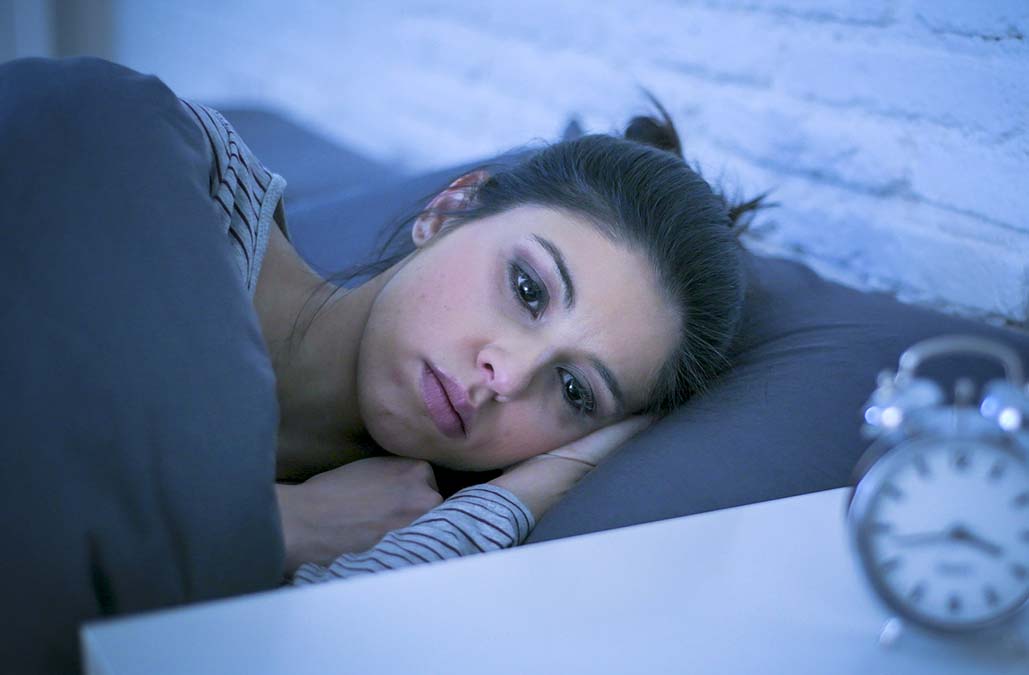 With no obvious symptoms that scream ‘Subclinical hypothyroidism’, it may not appear as serious as it actually is.
With no obvious symptoms that scream ‘Subclinical hypothyroidism’, it may not appear as serious as it actually is.
But according to a recent study in the journal Risk Management and Healthcare Policy it’s negatively affecting one thing you really need each day!
Sleep is essential and if you’re sleep deprived, it has a serious knock-on effect on everything, especially your health.
Chinese scientists recruited 2,224 subjects with subclinical hypothyroidism and 12,622 people with normal thyroid function. They asked them to complete the Pittsburgh Sleep Quality Index, a common questionnaire used by scientists to assess the amount of sleep and sleep quality.
The results showed that those with hypothyroidism had 12 percent greater chance of having a poorer sleep quality, 16 percent higher chance of having difficulties falling asleep, and 14 percent chance of being more likely to not have enough sleep.
Taking a long time before falling asleep and waking up way too early are the two main forms of insomnia.
Interestingly, the largest relationship between hypothyroidism and poor sleep was seen in younger women and in people with lower body mass index scores.
One possible reason for this relationship is that the thyroid-stimulating hormone and the thyroid hormone have a circadian rhythm, very much like your body has. If these cycles are out of sync, it can affect your sleep.
Scientists also believe that hypothyroidism somehow disrupts slow-wave sleep. If you have hypothyroidism, your metabolism slows down, which slows your body down.
Another possibility is there is an estrogen and progesterone imbalance, which causes both hypothyroidism and insomnia.
Whatever the reason, you should try to normalize your thyroid function if you want to improve your sleep quality.

 Multiple Sclerosis
Multiple Sclerosis Banishing Bronchitis
Banishing Bronchitis Gum Disease Gone
Gum Disease Gone Overcoming Onychomycosis
Overcoming Onychomycosis Neuropathy No More
Neuropathy No More The Prostate Protocol
The Prostate Protocol Brain Booster
Brain Booster
 Ironbound
Ironbound
 Solution for Shingles
Solution for Shingles
 The Bone Density Solution
The Bone Density Solution
 The Ultimate Healing Protocol
The Ultimate Healing Protocol
 The Parkinson's Protocol
The Parkinson's Protocol
 The Chronic Kidney Disease Solution
The Chronic Kidney Disease Solution
 Overthrowing Anxiety
Overthrowing Anxiety The Fatty Liver Solution
The Fatty Liver Solution The Hypothyroidism Solution
The Hypothyroidism Solution
 The End of Gout
The End of Gout The Blood Pressure Program
The Blood Pressure Program
 The Oxigized Cholesterol Strategy
The Oxigized Cholesterol Strategy
 Stop Snoring And Sleep Apnea Program
Stop Snoring And Sleep Apnea Program
 The Arthritis Strategy
The Arthritis Strategy The Vertigo & Dizziness Program
The Vertigo & Dizziness Program The 3-Step Diabetes Strategy
The 3-Step Diabetes Strategy Hemorrhoids Healing Protocol
Hemorrhoids Healing Protocol The Erectile Dysfunction Master
The Erectile Dysfunction Master Weight Loss Breeze
Weight Loss Breeze The IBS Program
The IBS Program The Insomnia Program
The Insomnia Program The Migraine and Headache Program
The Migraine and Headache Program The Neck Pain Solution
The Neck Pain Solution The Menopause Solution
The Menopause Solution The Ejaculation Master
The Ejaculation Master The TMJ Solution
The TMJ Solution The Acid Reflux Solution
The Acid Reflux Solution The Fibromyalgia Solution
The Fibromyalgia Solution The Psoriasis Strategy
The Psoriasis Strategy